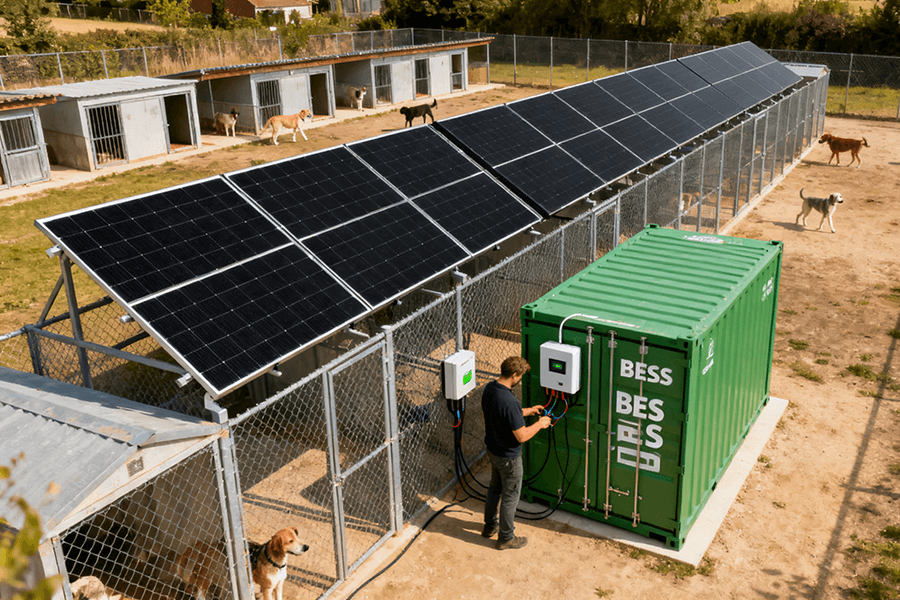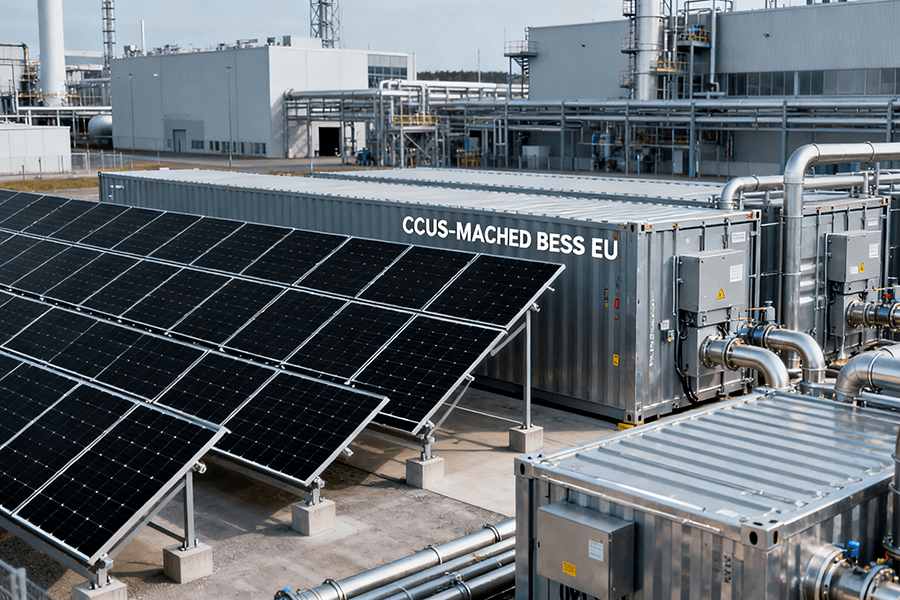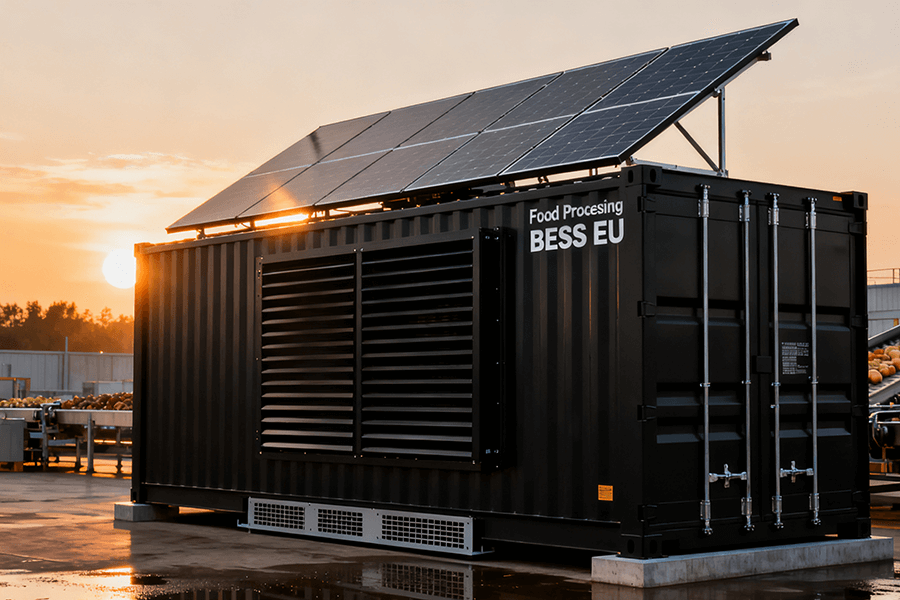
The Power Crisis Threatening Europe’s Silver Cafeterias
Let’s cut to the chase: Europe’s silver cafeterias are far more than just lunch spots—they’re lifelines. With over 4,200 operational facilities across the EU , these community hubs serve as the primary source of daily nutrition for 60% of their elderly patrons (aged 65+). But here’s a punchline no one finds funny: 48% of these cafeterias face weekly power outages , and a single 1-hour blackout can turn fresh, nutrient-dense meals into inedible waste—putting the nutritional security of vulnerable seniors at risk of malnutrition.
Imagine this scenario: You’re 78 years old, living alone, and the local silver cafeteria is your only source of a hot, balanced meal each day. Suddenly, the grid goes down. The ovens cool off, the refrigerators start warming up like a forgotten picnic basket in the sun, and your planned lunch vanishes. This isn’t just an inconvenience—it’s a direct threat to your health. And it’s a reality that contradicts the EU’s promise of “active and healthy aging” for all seniors .
Enter BESS containers : portable, powerful, and faster to respond than a barista at a busy Parisian café (just 0.8 seconds, to be exact ). These aren’t mere battery boxes—they’re nutritional bodyguards for Europe’s seniors. In the sections ahead, we’ll break down how BESS containers are saving meals, slashing energy costs, and keeping senior communities connected—even when the grid fails.
Core Applications in Cafeteria Operations: How BESS Containers Come to the Rescue
Silver cafeterias run on two non-negotiable pillars: fully functional kitchens and accessible entrances. BESS containers excel at supporting both—with zero diesel fumes, minimal noise, and none of the reliability issues that plague old-school backup generators (sorry, traditional generators: your loud, clunky days are officially behind you).
Commercial Kitchen & Refrigeration Power: No More Ruined Risottos or Spoiled Produce
Commercial kitchens in silver cafeterias are energy-intensive operations: ovens crank to 200°C to roast vegetables and proteins, refrigerators hum 24/7 to keep perishables fresh, and food warmers maintain a steady 60°C to ensure meals stay safe to eat. A 1-hour outage here isn’t just a minor hiccup—it’s a culinary and health disaster:
- Ovens cool rapidly, turning perfectly seasoned roasted chicken into rubbery, unappetizing portions.
- Refrigerator temperatures climb above the safe 4°C threshold, spoiling ingredients like leafy greens, dairy, and meat—and increasing the risk of foodborne illnesses .
- For cafeteria staff, this means wasted time, money, and the stress of scrambling to feed seniors with limited alternatives.
Case Study: Berlin’s Altstadt Silver Cafeteria
The Altstadt Silver Cafeteria in Berlin learned this hard lesson in 2023, when a 2-hour outage forced them to discard €1,800 worth of food and serve pre-packaged sandwiches (instead of their planned nutrient-rich stew) to 110 seniors. Determined to avoid a repeat, they installed a 250kWh BESS container in early 2024. Later that year, during a 3-hour grid outage, the BESS system kicked in instantly. It powered the ovens, refrigerators, and food warmers, allowing the cafeteria to serve 120 seniors their scheduled meal (a hearty beef and vegetable casserole) and avoid €2,000 in wasted ingredients .
To put the impact of BESS in perspective, here’s a breakdown of how outages affect silver cafeterias—and how BESS mitigates those risks:
|
Outage Duration
|
Average Cost of Wasted Food
|
Impact Without BESS
|
BESS Container Impact
|
|
1 Hour
|
€650
|
Ruined hot meals; partial fridge spoilage
|
Prevents 100% of hot meal waste; keeps fridges at safe temps
|
|
3 Hours
|
€2,000+
|
Total hot meal loss; 50% fridge spoilage
|
Maintains full kitchen operation; 0% fridge spoilage
|
|
5 Hours
|
€3,500+
|
Complete kitchen shutdown; 80% fridge spoilage
|
Powers critical equipment; protects refrigerated stock for 12+ hours
|
*Source: BATTLINK 2025 Energy Resilience Report *
Accessibility Equipment Backup: Keeping Ramps Up and Elevators Running
For 30% of silver cafeteria patrons—those with mobility issues like arthritis, limited vision, or wheelchair dependence—elevators and wheelchair ramps are make-or-break for accessing meals. An outage can trap seniors inside the cafeteria or block them from entering entirely, turning a simple trip for lunch into a logistical nightmare (and a source of anxiety for both seniors and their families).
Case Study: Madrid’s El Sol Silver Cafeteria
Madrid’s El Sol Silver Cafeteria serves a large population of seniors with mobility needs—nearly 40% of its 200 daily patrons use wheelchairs or walkers. In 2022, a 1.5-hour outage left 12 seniors trapped on the cafeteria’s second floor (where the dining area is located) for 45 minutes, until emergency services arrived to assist. To prevent future incidents, the cafeteria installed a 200kWh BESS container in 2023. During a 2.5-hour outage last winter, the BESS system kept the elevator and wheelchair ramp fully operational, ensuring 80 seniors could safely enter, exit, and move between floors.
As Maria Lopez, the cafeteria’s manager, put it: “Our BESS container is more reliable than my morning espresso. It never lets us down—and for our seniors, that reliability isn’t just convenient, it’s essential.”
Cost Savings & Sustainability: BESS Containers = More Cash for Fresh Cauliflower (and Greener Operations)
Local governments fund silver cafeterias on tight budgets—every euro saved on energy is a euro that can be reinvested into fresher produce, free nutritional counseling, or expanded meal delivery services. BESS containers deliver savings in two key ways: peak shaving (cutting high energy costs during busy hours) and solar integration (maximizing the value of renewable energy).
Peak Shaving: Beating the Grid’s “Lunch Rush” Price Surge
Silver cafeterias operate on a strict schedule: most serve meals between 11 AM and 2 PM—a window that coincides with Europe’s peak energy demand. During these hours, utility companies charge up to 35% more for electricity than during off-peak times (like 2 AM, when the cafeteria is closed). Why? Because everyone—from homes to businesses to other cafeterias—is using energy at the same time, and utilities hike rates to manage demand.
BESS containers solve this problem with peak shaving : they charge up during off-peak hours (when electricity is cheap) and discharge that stored energy during the 11 AM–2 PM rush. This reduces the cafeteria’s reliance on expensive grid power during peak times, slashing monthly energy bills.
Case Study: Amsterdam’s De Boer Silver Cafeteria
Amsterdam’s De Boer Silver Cafeteria, which serves 150 seniors daily, was struggling with monthly energy bills that spiked to €1,200 during winter (when heating and cooking demand were highest). In 2024, they installed a 220kWh BESS container optimized for peak shaving. The results were immediate:
- The container cut the cafeteria’s peak energy demand by 28%.
- Annual energy savings totaled €5,800 —enough to cover the cost of free nutritional counseling sessions for seniors with diabetes.
To put that savings into perspective:
- €5,800 = 116 one-on-one nutritional counseling sessions (at €50 per session).
- €5,800 = 290 kg of fresh salmon (a nutrient-dense protein source popular with seniors) at €20 per kg.
- €5,800 = 1,450 servings of fresh spinach (a key source of iron and vitamins) at €4 per kg.
It’s a win-win: lower costs for the cafeteria, and better nutrition for seniors.
Solar Integration: Green Power for Graying Populations
The EU’s “Sustainable Senior Facility” certification requires facilities to source at least 20% of their energy from renewable sources—a mandate that’s pushing many silver cafeterias to install rooftop solar panels. But solar has a catch: it only generates power when the sun is shining. When the sun sets (or when it rains, as it often does in cities like Copenhagen), cafeterias have to switch back to grid power.
BESS containers fix this by storing excess solar energy during the day, so cafeterias can use that green power even after dark. This not only helps cafeterias meet EU sustainability requirements but also reduces their long-term energy costs—and makes them eligible for additional EU grants.
Case Study: Copenhagen’s Sollys Silver Cafeteria
Copenhagen’s Sollys Silver Cafeteria wanted to reduce its carbon footprint and qualify for EU sustainability grants. In 2024, they installed a 180kW rooftop solar system paired with a 250kWh BESS container . The results were impressive:
- 55% of the cafeteria’s annual energy use now comes from renewable solar power (well above the EU’s 20% requirement).
- The cafeteria reduced its carbon emissions by 12 tons per year—equivalent to planting 300 trees .
- The sustainability upgrades made the cafeteria eligible for €15,000 in annual EU green energy incentives , which it used to expand its meal delivery service to 30 more homebound seniors.
Pro tip: Solar + BESS isn’t just good for the planet—it’s good for funding. EU grants for sustainable senior facilities often prioritize projects that combine renewable energy with energy storage, making BESS containers a smart investment for long-term financial stability.
Community Impact & Compliance: BESS Containers = Happy Seniors + Happy EU Auditors
Silver cafeterias are the heart of many senior communities—they’re places where seniors socialize, get support, and access nutritious food. BESS containers ensure these hubs stay operational, even during grid outages. They also help cafeterias meet EU regulations and qualify for critical funding—making them a win for both seniors and local governments.
Meal Delivery Continuity: No Outage = No Empty Plates for Homebound Seniors
30% of silver cafeteria patrons are homebound—they rely on delivery drivers to bring hot, fresh meals directly to their doors. For these seniors, a cafeteria outage isn’t just a missed meal—it’s a day without proper nutrition. Traditional backup systems (like generators) often can’t power both the kitchen and delivery vehicle chargers, forcing cafeterias to cancel deliveries.
BESS containers, however, have the capacity to power both critical kitchen equipment and delivery infrastructure. This means even during outages, homebound seniors still get their meals on time.
Case Study: Paris’s La Table d’Alice Silver Cafeteria
La Table d’Alice in Paris delivers 60 hot meals daily to homebound seniors—many of whom have no other way to get a balanced meal. In 2024, a 2-hour grid outage hit during the cafeteria’s peak delivery window. Thanks to its 220kWh BESS container , the cafeteria kept its kitchen running and its delivery vehicle chargers powered. All 60 homebound seniors received their meals on time—including 82-year-old Jeanne, who later said: “I thought I’d be eating cereal for lunch. Instead, I got beef bourguignon—merci, BESS!”
The BESS container didn’t just save meals—it preserved the dignity and health of some of the cafeteria’s most vulnerable patrons.
EU “Active and Healthy Aging” Funding: Cash for BESS Containers
The EU’s “Active and Healthy Aging” initiative provides grants to projects that improve the quality of life for seniors—and BESS containers qualify. These grants can cover up to 70% of BESS installation costs , making energy resilience affordable for cash-strapped local governments.
Case Study: Lisbon’s Casa do Velho Silver Cafeteria
Lisbon’s Casa do Velho Silver Cafeteria serves 180 seniors daily but struggled with frequent outages. The cafeteria wanted to install a BESS container but couldn’t afford the €107,143 project cost on its own. In 2023, they applied for EU “Active and Healthy Aging” funding—and were approved for a €75,000 grant (covering 70% of the cost).
With the grant, the cafeteria installed a 220kWh BESS container in 2024. They used the remaining €32,143 (their 30% contribution) to upgrade their kitchen with new, energy-efficient ovens—allowing them to serve more nutrient-dense meals (like quinoa salads and omega-3-rich fish) at no extra cost to seniors.
Below is a breakdown of the funding for Lisbon’s BESS project:
|
Project Component
|
Total Cost
|
EU Grant (70%)
|
Local Government Contribution (30%)
|
|
220kWh BESS Container (including installation)
|
€95,000
|
€66,500
|
€28,500
|
|
Energy-Efficient Kitchen Upgrades
|
€12,143
|
€8,500
|
€3,643
|
|
Total Project
|
€107,143
|
€75,000
|
€32,143
|
*Source: EU Active and Healthy Aging Funding Portal 2025 *
Why Maxbo Solar BESS Containers Are the Gold Standard (From Someone Who Works Here)
Hi, I’m Sarah Mendes, Senior Product Specialist at Maxbo Solar—and I’ve spent the last 5 years helping European silver cafeterias transition from grid-dependent to energy-resilient. Over that time, I’ve seen firsthand how the right BESS container can transform a cafeteria’s operations. Here’s why Maxbo Solar’s BESS containers are the top choice for senior communities across Europe:
Designed Specifically for Silver Cafeterias (Not Construction Sites)
Unlike generic BESS containers (which are built for large industrial sites), our containers are engineered with the unique needs of silver cafeterias in mind:
- Compact Sizing: Our 20ft and 40ft units fit in even the smallest cafeteria backyards or parking lots—no need to sacrifice space for power.
- Silent Operation: Our BESS containers run quieter than a whisper (less than 40 decibels), so they don’t disrupt seniors’ lunch conversations or daily routines.
- Extreme Weather Resistance: Built to withstand temperatures from -40°C (Copenhagen winters) to +50°C (Madrid summers) and rated IP68 for water and dust resistance—so they keep working, no matter the weather.
- EU-Certified: All our containers are CE-marked and comply with EU safety and sustainability standards, making them easy to integrate into existing cafeteria operations.
Proven Performance (We Don’t Just Talk the Talk—We Have the Case Studies)
Our BESS containers aren’t just theoretical—they’re already powering silver cafeterias across Europe, with results you can see:
- Berlin’s Altstadt Cafeteria: Our 250kWh BESS container kept the kitchen running during a 3-hour outage, saving €2,000 in food and serving 120 seniors.
- Madrid’s El Sol Cafeteria: Our 200kWh BESS container maintained elevator and ramp access for 80 seniors during a 2.5-hour winter outage.
- Lisbon’s Casa do Velho: Our 220kWh BESS container helped the cafeteria qualify for €75,000 in EU grants and expand its meal services.
We also offer 4-week deployment (most competitors take 3–6 months) because we know seniors can’t wait half a year for reliable power. And our support team is based in the EU—so if you have a question at 8 AM in Berlin or 2 PM in Lisbon, you’ll get a response from someone who speaks your language and understands your needs.
Let’s Make Your Cafeteria Energy-Resilient—Together
At Maxbo Solar, we’re not just selling BESS containers—we’re selling peace of mind. Whether you need to prevent food waste, cut energy costs, qualify for EU grants, or keep homebound seniors fed, we’ll work with you to design a BESS solution that fits your cafeteria’s unique needs.
Visit our website at www.maxbo-solar.com to browse our silver cafeteria-specific BESS models, read more case studies, or schedule a free consultation.






